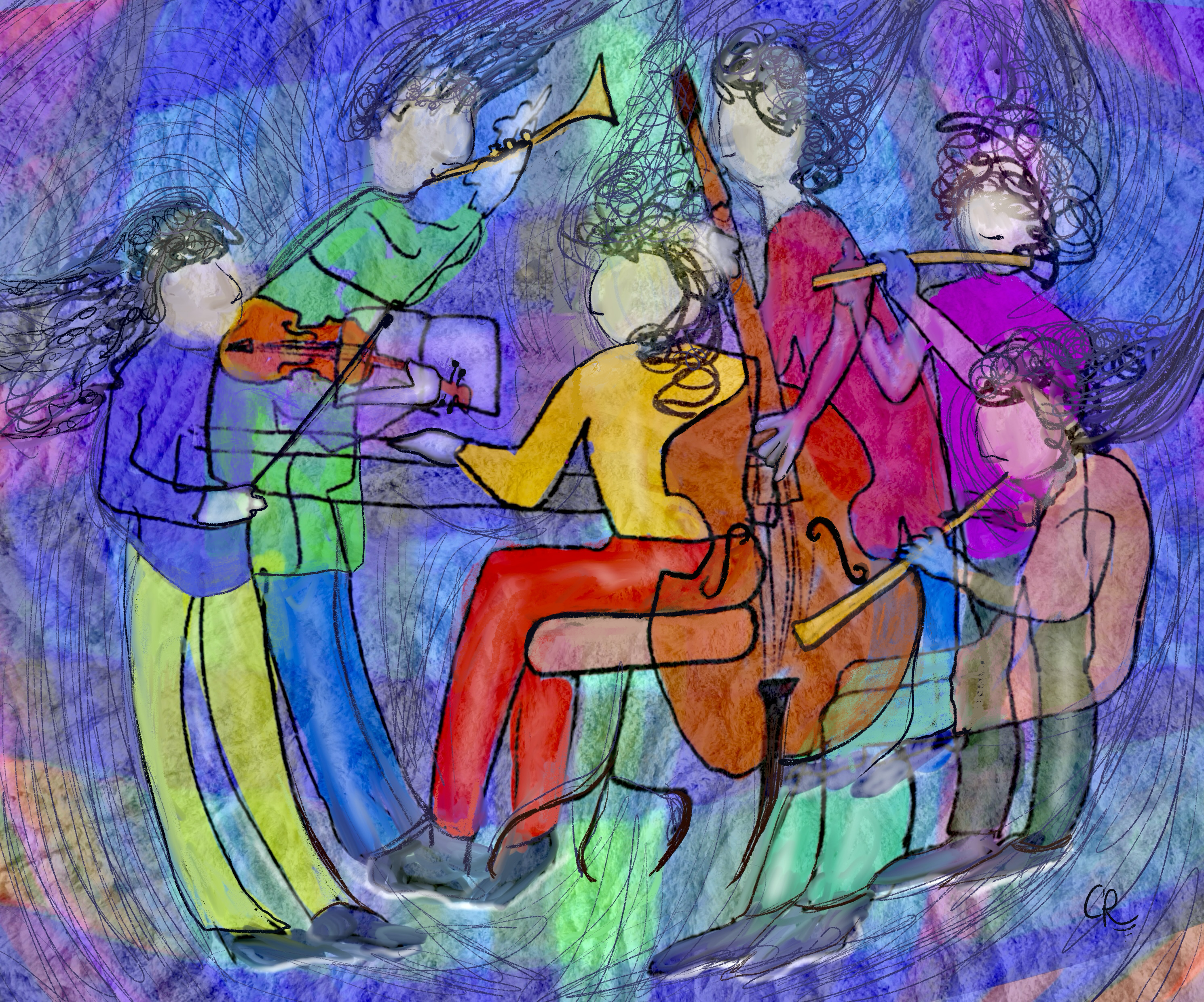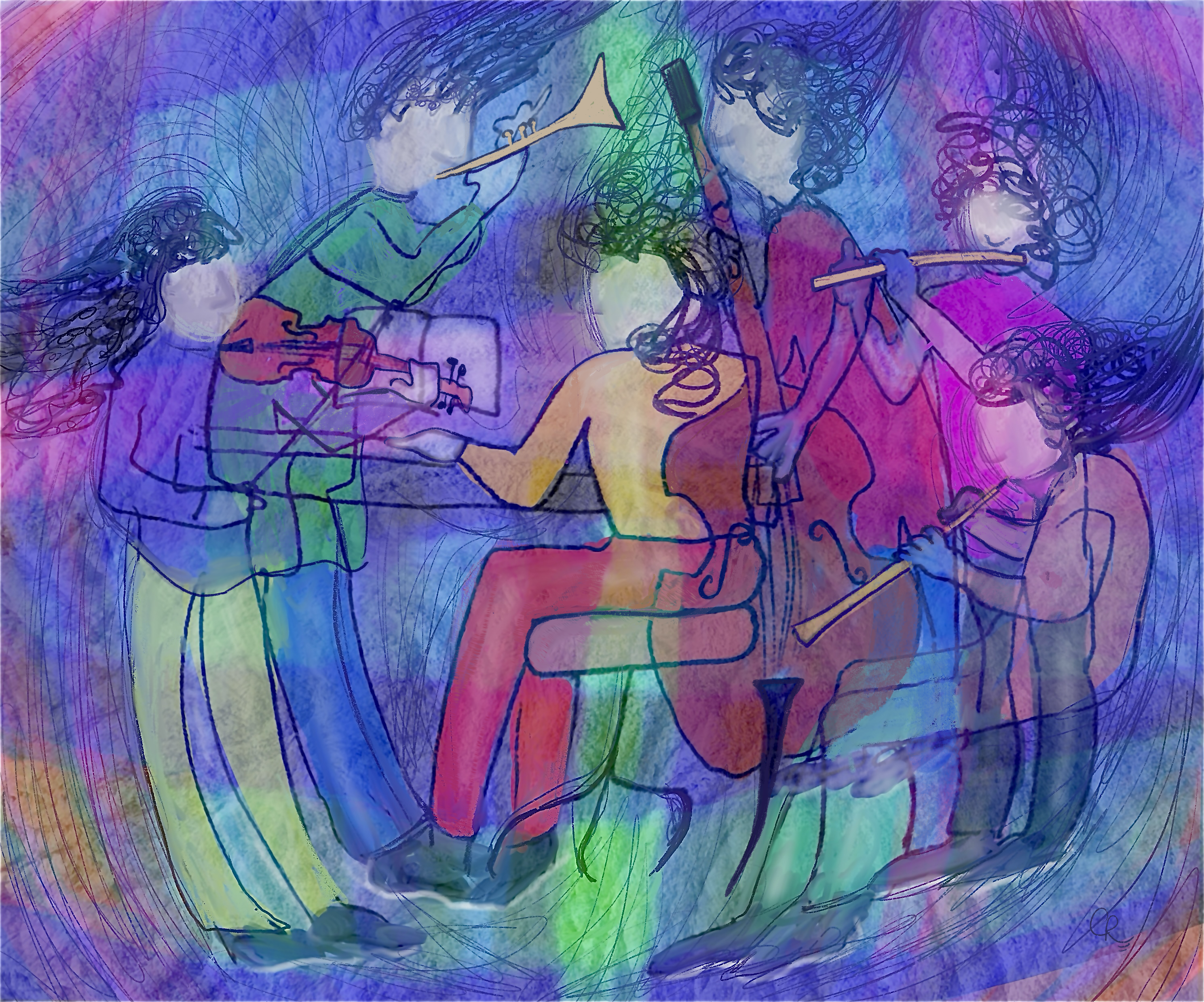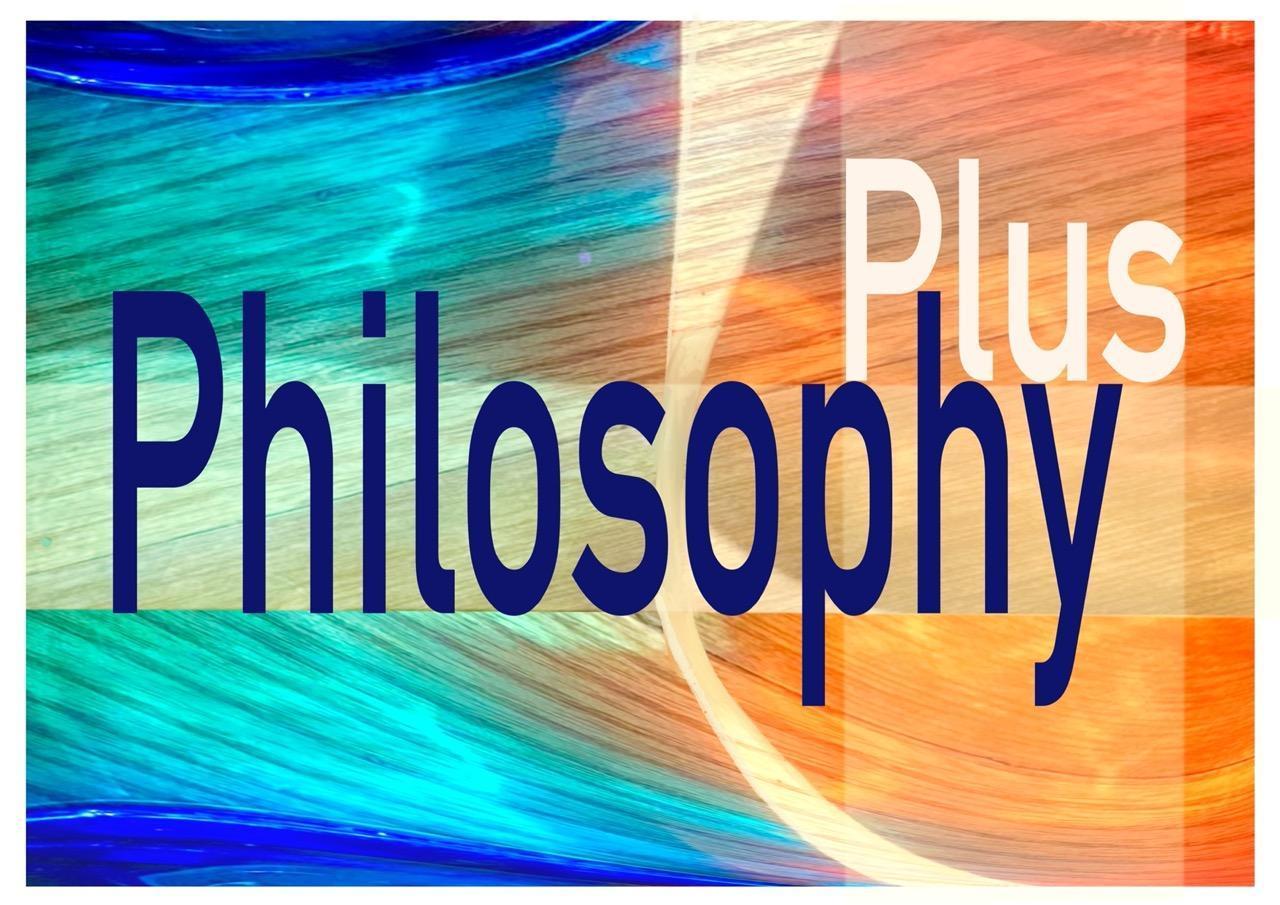
Composer, musician, ensemble...
Composer, musician, ensemble...

"...a person holds the same relationship to this book that a virtuoso, in playing a selection on the piano, holds to the composer of the piece, that is, she reproduces the whole thing within herself — naturally according to her ability to do so..." (RS writing about Philosophy of Freedom GA103 31 May 1908, Hamburg, Lecture 1).
What does it mean to play the piece of music a composer has created? To play it well, in our own individual way, full of musical life, yet, not alter it in any way, such as putting the notes in a different order, which would mean playing quite another piece of music, and not what the composer created.
What does it mean to reproduce the ideas in this book within ourselves as a logically arranged organism, in a strictly built-up sequence of thought as it is laid out? If we want to know what the Philosophy of Freedom is about, we have to think it ourselves. If we want to think it well, we need to train our thinking, just as a musician needs to know and master her instrument and her skills for reading and interpreting a musical score.
Josiane and I expanded this musical indication together...we master our instrument and we practice hard, we learn and interpret the musical score, and then, we come together as a musical ensemble. The oboe or the first violin gives the note so that all the instruments of the ensemble can tune their instruments to the same note, to be able to play together in tune and in harmony. We need an instrument to give the note, to lead the tuning, or in the case of our 'study ensemble', to bring the opening meditation of preparing the inner laboratory...we are conducted by the Philosophy of Freedom.
